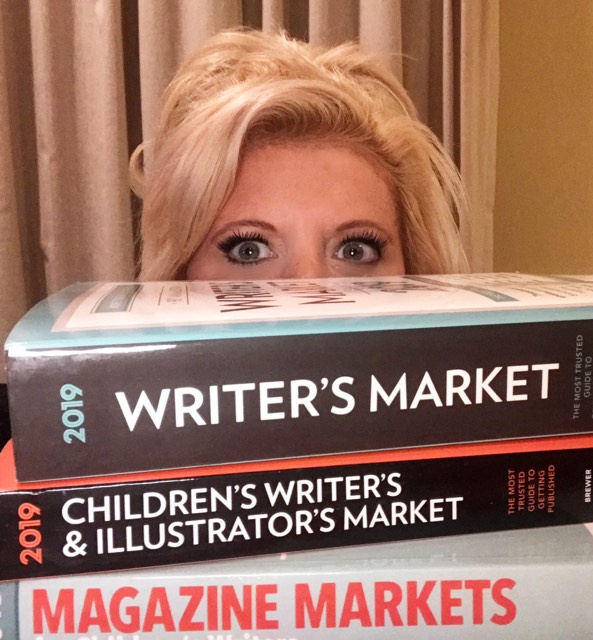A query letter is your chance to make a great first impression at a publishing house or a magazine, which is why your letter had better be amazing. After writing hundreds of successful query letters over the course of my journalistic career, I’ve come up with the following “quick query tips” to help you become the king or queen of queries.
- Be professional: Use Times New Roman, 12-point type and keep your text flush left. Just because you’re querying a children’s magazine or a children’s book editor, don’t get all goofy. For example, don’t use glitter paper or baby farm animal stickers to jazz up your query.
- Always address your query letter to a specific person: You’ll find that information in the various Writer’s Market Guides, on publisher websites, and from faculty listings of various conferences. As a last resort, call the publisher or publication to find out an editor’s name spelling and title just to be sure.
- Indicate you’ve studied their publishing house or magazine: You might mention a book they’ve published or an article they have published or a section of their magazine that relates to your suggested text.
- Show how your proposed book/story fits with their publishing program.
- Go the extra mile: Always offer a little extra something in your query letter such as photographs to accompany your text or a parenting moment or “Fun Factoids” on the last page of your manuscript or a fun sidebar to accompany your main magazine article. The editors may not want all of those elements, but they will be impressed that you offered them.
- Make sure the publisher/magazine you’re querying is currently accepting submissions: Some only accept queries from unagented writers during certain months of the year. Also, some magazines work from theme lists so check to see if the magazine you’re querying is working with such a list. If so, mention which month/theme your proposed story idea fits.
- Keep it concise: Try to keep your query to one page.
- Always include your credentials in your third paragraph: Even if you don’t yet have any publishing credits, and even if you haven’t yet won any writing awards, you still have something you can write in that third paragraph. Share why you’re the perfect person to write that particular article or book. For example, if you’re pitching an article about skin cancer, and you’re a melanoma survivor, you can include that in your letter. Or, if you have a really great source that you plan to quote in your article, mention that source.
- Make your last two lines work for you: The close to your query letter is just as important as your opening paragraph. Thank the editor for reading your query letter, and then offer to take on story ideas that their staff may not have time to generate. Tell the editor you are open to “Work for Hire” projects and that you’d like to be included in their “freelance pool of writers.”

Once you’ve crafted an amazing query letter, make sure you keep good records, including the publication’s name, the editor’s name, the date you sent it, and when you expect to hear back from that publication.
If the magazine/publisher accepts simultaneous submissions, pinpoint five or so publications that would be a good fit for your story idea/book and prepare letters for each one. I call this the “nail it and mail it” step. Just double check that you’ve changed the editor’s name and publication’s address for each letter. And, be sure you’re sending that query the way the publication’s guidelines instruct—via email or snail mail.
Lastly, try to keep ten things circulating all the time. I call this the “ten in rule,” meaning I always have ten submissions out. Now, I may only have two different story ideas that I’m pitching, but I will pitch each one to five different magazines or publishing houses. Make sense?
Ok, now go forth and query with confidence!

Michelle Medlock Adams is an award-winning journalist and best-selling author of over 90 books with close to 4 million sold. Her many journalism and book awards include top honors from the Associated Press, AWSA’s Golden Scroll for Best Children’s Book, and the Selah Award for Best Children’s Book. Michelle currently serves as President of Platinum Literary Services, a premier full-service literary firm; Chairman of the Board of Advisors for Serious Writer, Inc.; and a much sought-after speaker at writers conferences and women’s retreats all over the United States.
When not writing or teaching writing, Michelle enjoys bass fishing and cheering on the Indiana University Basketball team, the Chicago Cubbies, and the LA Kings.
Michelle is celebrating the recent release of her books, Get Your Spirit On!, Fabulous & Focused, Dinosaur Devotions, and C Is for Christmas, and she’s anticipating the upcoming release of What Is America? (Worthy Kids) and They Call Me Mom (Kregel), a devotional book she co-authored with Bethany Jett.




No Comments